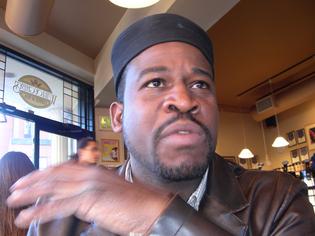A sleepy-eyed man in a plaid shirt held out two dollars: “Four loosies,” he mumbled.
“No loosies,” came the reply from the clerk, eying a reporter nearby.
“No loosies today,” the clerk repeated a few minutes later, as customers streamed in and out of this Congress Avenue corner store late one rainy morning.
The sale of loosies — unpackaged cigarettes without a health warning — is prohibited by state law. In some New Haven corner stores, it happens anyway.
A group of aldermen wants to crack down on loosie sales as part of a wider effort to tackle quality of life issues near convenience stores.
One of those aldermen, Beaver Hill’s Moti Sandman, said corner stores have become a threat in his part of town.
On a recent walk down Whalley Avenue past a late-night corner store, he found brown-bagged drinking, drug deals and public urination. The sale of drug paraphernalia and loosies feeds that behavior, he said.
“We’re seeing that there’s a hand-in-hand problem that when you have loosies being sold, you have kids hanging out and trouble happening,” Sandman said.
“Corner stores are becoming a safe haven, a time out area for criminals,” agreed Officer Shafiq Abdussabur, who heads the CTRIBAT program for urban youth. The all-night hangouts help lure young kids into drugs and crime, he said.
By state law, smokes must be sold in unopened packs with the required health warning. Enforcement lies with the state Commissioner of Revenue Services. Alleged violators are brought for a hearing before the commissioner, who may apply a civil penalty or revoke a store’s license. Penalties range from $50 for a first offense, $250 for a second offense and $500 for a third or subsequent offense.
Getting Loosie On The Aldermanic Floor
No local law governs loosie sales. In an ordinance amendment to be communicated to the Board of Aldermen Monday night, Sandman and three alders call for creating a local law that would give more teeth to loosie enforcement, prohibiting loosie sales and increasing fines beyond state penalties.
The proposal would also “maximize the fines on items that may be used as drug paraphernalia,” such as glass pipes used for crack.
A third prong of their corner store plan would require any new convenience store to seek zoning permission to stay open after 11 p.m. The bill is co-sponsored by Aldermen Roland Lemar, Alex Rhodeen and Greg Morehead.
 Abdussabur (pictured) said CTRIBAT, a hard-hitting youth program that steers at-risk kids away of trouble, has been looking into a similar plan to tackle those the same issues.
Abdussabur (pictured) said CTRIBAT, a hard-hitting youth program that steers at-risk kids away of trouble, has been looking into a similar plan to tackle those the same issues.
He had a few ideas to add to aldermen’s proposal, which is written in brief with the intent to be fleshed out through the public hearing process.
Abdussabur is on board with restricting convenience stores to being open only from 6 a.m. to 11 p.m. As evidence for why this would work, he pointed to a corner store at Bassett and Dixwell that would be hopping late into the night. Folks would stop by for a Philly blunt at 2 a.m., and sometimes guns went off.
The store was recently given an 11 p.m. curfew. Since then, he said robberies and shootings on that corner have dropped.
Abdussabur said stores need to be held accountable for passively supporting drug use. Drug paraphernalia, like pre-packaged steel wool pads and glass vials used for rose stems, need to be banned. He also supports banning the sale of toy guns and gun-like cigarette lighters, and requiring stores to improve outside lighting and post a 24-hour phone number out front.
He suggested a violation of $100 per banned item sold, enforceable not only by police but by City Hall’s Livable City Initiative.
Cracking down on corner stores is one attainable way to keep kids away from negative environments that lead to gun violence, he said.
“We can’t sue the gun manufacturers,” he said, but “these are things that we can change. Little small things like this can make a difference in these communities.”